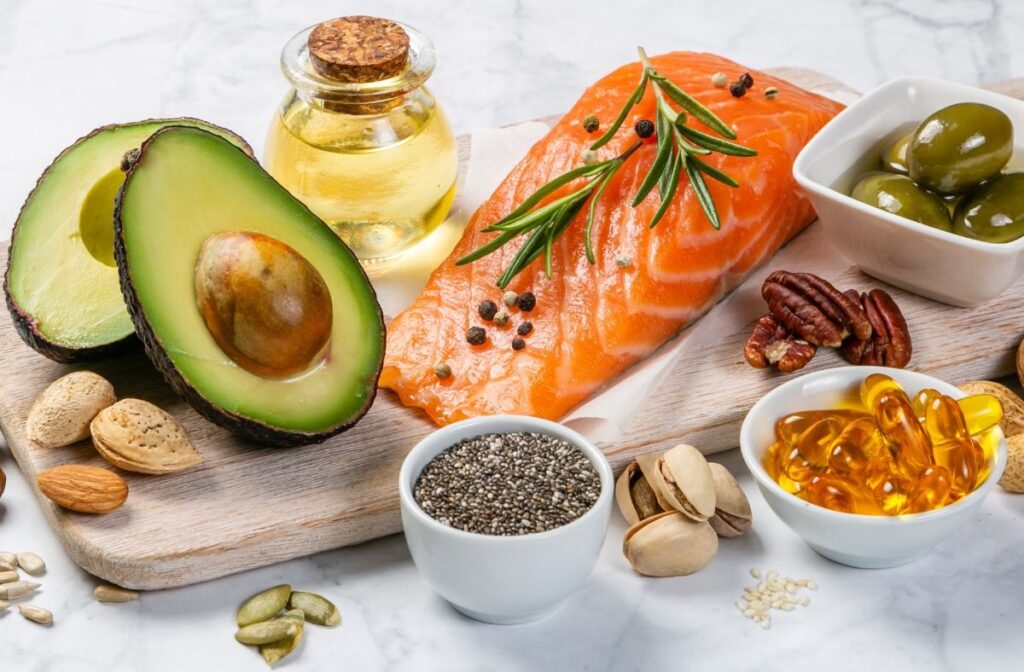 Have you been trying to avoid fat? You might be shocked at how essential fat in your diet is to your health and well-being.
Have you been trying to avoid fat? You might be shocked at how essential fat in your diet is to your health and well-being.
It’s not your fault if you’re perplexed. Many authorities campaigned against dietary fat in the late 1980s, associating it with heart disease and obesity.
Unfortunately, they did not differentiate between saturated fats and healthy fats.
Meanwhile, in response to market demand, food makers produced low-fat cookies and other items.
They overlooked the fact that these alternatives typically contained more carbohydrates and sugar, making them equally as calorie-dense.
As a result, many Americans gained weight because they believed it was okay to eat more.
The good news is that a variety of high-fat foods are both tasty and healthful.
Learn whether you should eat more fat and how to do it in a healthy way.
The Advantages of Eating Fat in Your Diet
According to current recommendations, you should consume 20 to 35% of your total daily calories from fat. Your individual requirements will be determined by your general health and degree of activity.
Here are some of the advantages you will enjoy:
1. You are Satisfied. If you’re constantly hungry, you probably need extra fat. Begin with a hearty breakfast, such as Greek yogurt instead of bacon. Fiber-rich foods can also assist. You’ll be more at ease and have more energy.
 2. Fortify your Heart. Monounsaturated fats raise HDL cholesterol levels while decreasing triglyceride levels. This reduces your chances of developing heart disease or having a stroke.
2. Fortify your Heart. Monounsaturated fats raise HDL cholesterol levels while decreasing triglyceride levels. This reduces your chances of developing heart disease or having a stroke.
3. Safeguard your Brain. Fats also affect your mental functions and brain structure. They aid in the treatment of brain fog, memory loss, and depression.
4. Keep your Joints Lubricated. Another source of worry is chronic inflammation. Your food and overall lifestyle can help alleviate some of the strain on your knees and hips.
5. Increase your Immunity. Inadequate fat consumption might decrease your immune system and make you more prone to illnesses. According to research, runners who switched to a higher-fat diet increased their levels of some immune cells.
6. Take your Vitamins. You may also be susceptible to nutritional deficits. While many vitamins are water-soluble, A, D, E, and K can only be absorbed when they are dissolved in fat.
Eating Fat in Your Diet: Healthy Strategies
Prioritize quality over quantity. Aim for less than 10% saturated fat in your total fat calories, with the remainder being polyunsaturated or monounsaturated.
Try the following methods:
1. Eat Less Beef. Excessive red meat consumption increases the risk of diabetes, heart disease, and certain malignancies. Limit your beef consumption to one or two portions per week. Consume little to no processed meat, such as sausage, hot dogs, and cold cuts.
2. Make Use of Plant Oils. Use a variety of plant oils that are high in monounsaturated and polyunsaturated fatty acids, as well as antioxidants. Olive, avocado, sesame, safflower, and sunflower oils are also excellent alternatives.
3. Consume Nuts and Seeds. Although they are high in calories, research shows that consuming moderate amounts of nuts and seeds on a regular basis may help you lose weight. Make your own nut butter, trail mixes, smoothies, and porridge using them.
4. Experiment with Fatty Fish. Two servings of oily fish per week are recommended by the American Heart Association. To help you remember, the abbreviation SMASH stands for salmon, mackerel, anchovies, sardines, and herring.
5. Increase Your Omega-3 Intake. These polyunsaturated fatty acids have been shown to regulate blood pressure and reduce ADHD symptoms in youngsters. If you don’t like fish, you can find it in seaweed, chia seeds, and flax.
Fat in Your Diet is Good for Your Health!
Feel free to indulge in olive oil, various nuts and seeds, and other healthy fats.
They are necessary for your health and taste wonderful. Plus, when you have fat in your diet, you will feel more satisfied after eating.






